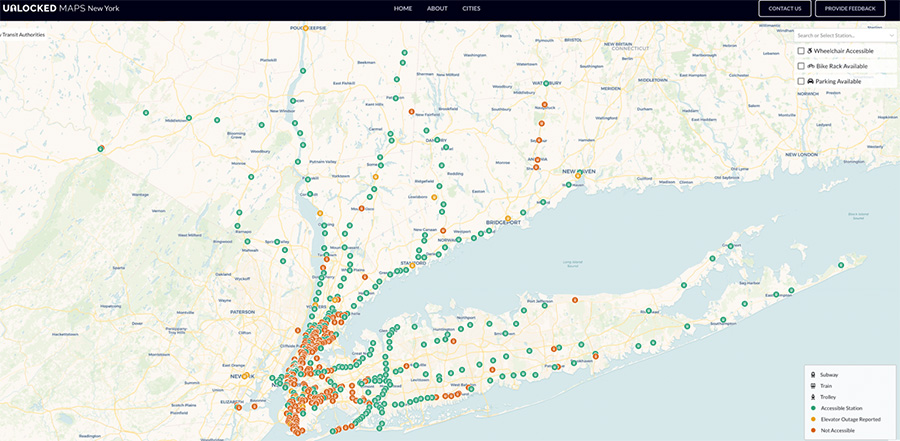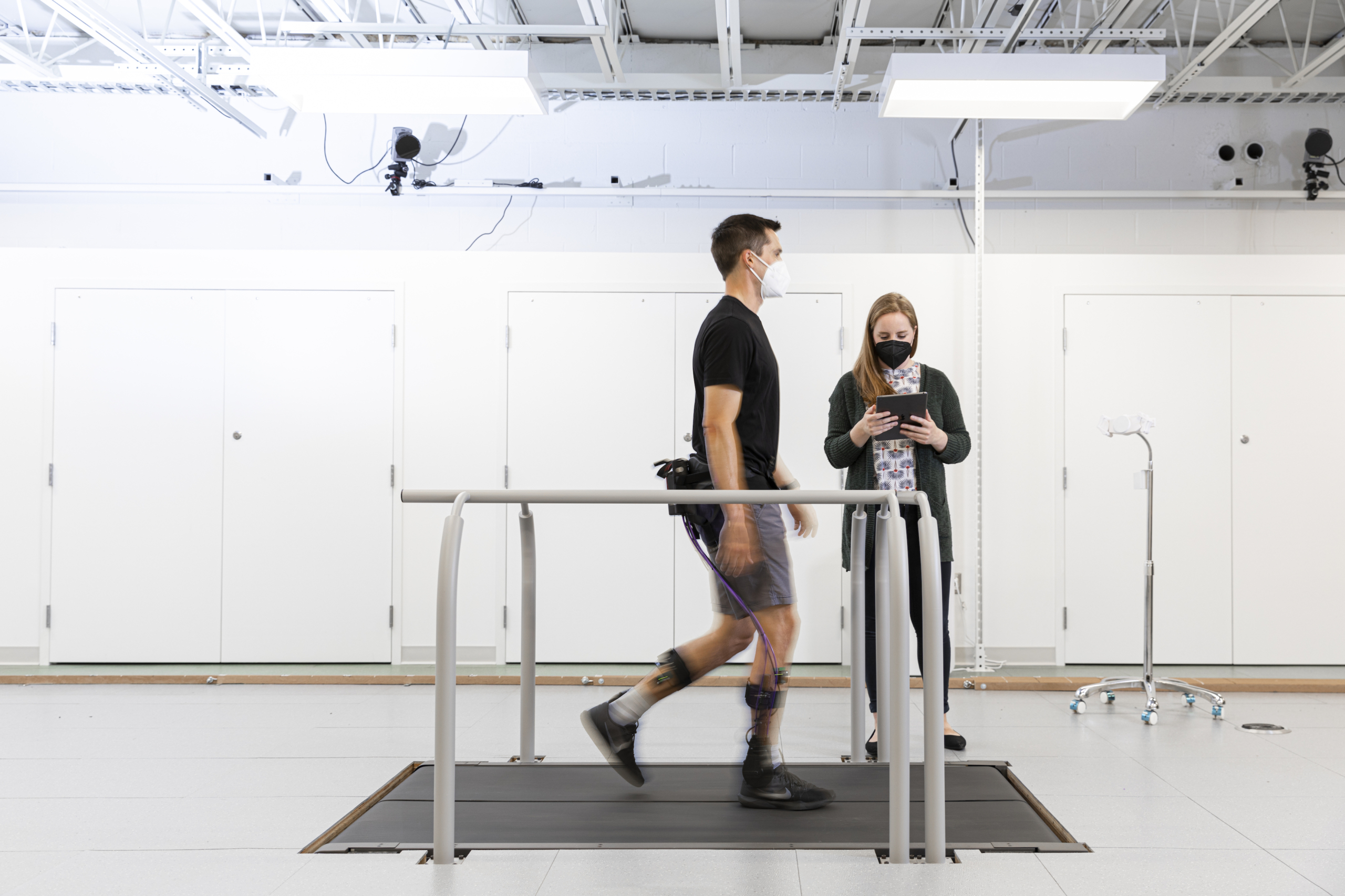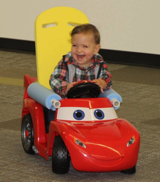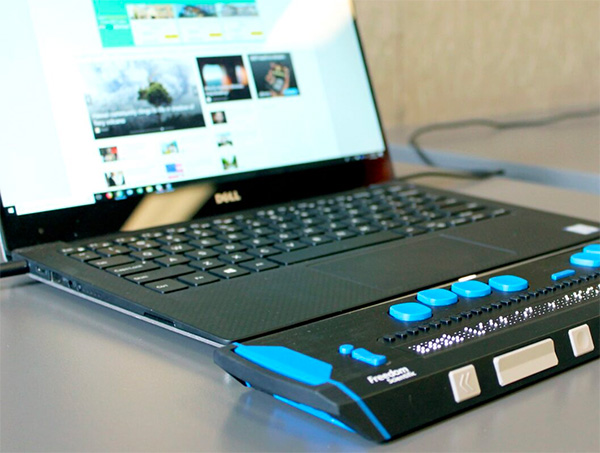October 2, 2023 The designers of the Virtual Traffic Stop app aim to ease tensions and prevent misunderstandings between drivers and law enforcement during traffic stops. For Hard-of-Hearing or Deaf drivers, the app can be used to communicate with law enforcement via chat during the video. Users can add family members and invite them to the chat for additional assistance. A Gainesville Florida K-12 school has announced their endorsement of Virtual Traffic Stop and has encouraged parents and their children…
Category: RESEARCH
News about research from CREATE faculty and partners and peers.
Proposed Federal Accessibility Standards: CREATE’s Guide to Reviewing and Commenting
A proposal for new digital accessibility guidelines for entities receiving federal funds was released for review by the U.S. Department of Justice on August 4, 2023. Anyone affected by these guidelines had until October 3, 2023 to comment. August 2023 announcement Note that the comment period has ended. The U.S. Department of Justice (DoJ) is proposing new requirements for digital accessibility for the Americans with Disabilities Act (ADA). Their goal is to provide public entities with clear and concrete standards…
CREATE Open Source Projects Awarded at Web4All
July 6, 2023 CREATE researchers shone this spring at the 2023 Web4All 2023 conference that, in part, seeks to “make the internet more accessible to the more than one billion people who struggle to interact with digital content each day due to neurodivergence, disability or other impairments.” Two CREATE-funded open source projects won accolades. Best Technical Paper award:Understanding and Improving Drilled-Down Information Extraction from Online Data Visualizations for Screen-Reader Users Authors: Ather Sharif, Andrew Mingwei Zhang, CREATE faculty member Katharina…
Accessible Technology Research Showcase – Spring 2023
The 2023 CREATE and HuskyADAPT research showcase brought 25 project presentations and over 100 attendees.
Codesigning Videoconferencing Tools for Small Groups with Mixed Hearing Status
June 12, 2023 CREATE students and faculty have published a new paper at CHI 2023, ‘Easier or Harder, Depending on Who the Hearing Person Is’: Codesigning Videoconferencing Tools for Small Groups with Mixed Hearing Status”. Led by Human Centered Design and Engineering (HCDE) Ph.D. candidate Emma McDonnell and supported by CREATE, this work investigates how groups with both hearing and d/Deaf and hard of hearing (DHH) members could be better supported when using captions during videoconferences. Researchers recruited four groups…
User-informed, robot-assisted social dining for people with motor impairments
June 1, 2023 A team of Allen School robotics researchers has published a paper on the finer aspects of robot-assisted dining with friends. “A meal should be memorable, and not for a potential faux pas from the machine,” notes co-author Patrícia Alves-Oliveira. Supported by a CREATE Student minigrant and in the spirit of “nothing about us without us,” they are working with the Tyler Schrenk Foundation to address the design of robot-assisted feeding systems that facilitate meaningful social dining experiences. The team is led by Ph.D. student Amal Nanavati and postdoc Patrícia Alves-Oliveira, and includes…
Rethinking Disability and Advancing Access
UW CREATE collaborates toward a world with fewer problems and more solutions for people of all abilities. The UW College of Engineering showcased CREATE’s mission, moonshots, and collaborative successes in a feature article, Rethinking disability and advancing access, written by Alice Skipton. The article is reproduced and reformatted here. According to the Centers for Disease Control and Prevention (CDC), one in four people in the United States lives with a disability. “The presence of disability is everywhere. But how disability has…
A11yBoard Seeks to Make Digital Artboards Accessible to Blind and Low-Vision Users
Just about everybody in business, education, and artistic settings needs to use presentation software like Microsoft PowerPoint, Google Slides, and Adobe Illustrator. These tools use artboards to hold objects such as text, shapes, images, and diagrams. But for blind and low vision (BLV) people, using such software adds a new level of challenge beyond keeping our bullet points short and images meaningful. They experience: Screen readers, which were built for 1-D text information, don’t handle 2-D information spaces like artboards…
Postdoc Research Spotlight: Making Biosignal Interfaces Accessible
April 11, 2023 The machines and devices we use every day – for example, touch screens, gas pedals, and computer track pads – interpret our actions and intentions via sensors. But these sensors are designed based on assumptions about our height, strength, dexterity, and abilities. When they aim for the average person (who does not actually exist), they aren’t usable or accessible. CREATE Post-doctoral student Momona Yamagami seeks to integrate personalization and customization into sensor design and the resulting algorithms…
Jacob O. Wobbrock awarded Ten-Year Technical Impact Award
January 5, 2023 The Association for Computing Machinery (ACM) has honored CREATE Co-Director Jacob O. Wobbrock and colleagues with a 10-year lasting impact award for their groundbreaking work improving how computers recognize stroke gestures. Wobbrock, a professor in the Information School, and co-authors Radu-Daniel Vatavu and Lisa Anthony were presented with the 2022 Ten Year Technical Impact Award in November at the ACM International Conference on Multimodal Interaction (ICMI). The award honors their 2012 paper titled Gestures as point clouds: A $P recognizer…
UnlockedMaps provides real-time accessibility info for rail transit users

Congratulations to CREATE Ph.D. student Ather Sharif, Orson (Xuhai) Xu, and team for this great project on transit access! Together they developed UnlockedMaps, a web-based map that allows users to see in real time how accessible rail transit stations are in six metro areas including Seattle, Philadelphia (where the project was first conceived by Sharif and a friend at a hackathon), Chicago, Toronto, New York, and the California Bay Area. Shown here is a screenshot of UnlockedMaps in New York. Stations that are…
A Ph.D. Student’s Promising Research in Mobility in Cerebral Palsy

November 8, 2022 Whether she’s researching how biofeedback systems can guide gait training in children with cerebral palsy or leading toy adaptation events, Alyssa Spomer is committed to advancing accessible technology. A Ph.D. student in UW Mechanical Engineering (ME) and advised by CREATE Associate Director Kat Steele, Spomer is the student chair of CREATE-sponsored HuskyADAPT. Her studies have been multidisciplinary, spanning ME and rehabilitation medicine. She uses her engineering skills to understand the efficacy of using robotic devices to target and improve…
Large-Scale Analysis Finds Many Mobile Apps Are Inaccessible
October 6, 2022 Mobile apps have become a key feature of everyday life, with apps for banking, work, entertainment, communication, transportation, and education, to name a few. But many apps remain inaccessible to people with disabilities who use screen readers or other assistive technologies. Any person who uses an assistive technology can describe negative experiences with apps that do not provide proper support. For example, screen readers unhelpfully announce “unlabeled button” when they encounter a screen widget without proper information…
CREATE + I-LABS: focus on access, mobility, and the brain

A new research and innovation partnership between CREATE and the UW Institute of Learning and Brain Sciences (I-LABS) focuses on access, mobility, and the brain, especially how early experiences with mobility technology impact brain development and learning outcomes.
CREATE becomes a principal sponsor of HuskyADAPT
CREATE is pleased to be a financial and advisory sponsor of HuskyADAPT, an interdisciplinary community that is dedicated to improving the availability of accessible technology in Washington and fostering conversations about the importance of accessible design. HuskyADAPT is led by a team of UW students and six faculty advisors, including CREATE directors Kat Steele, Heather Feldner, Anat Caspi and Jennifer Mankoff. Open to all to join, their three primary focus areas are annual design projects, K-12 outreach and toy adaptation workshops, where volunteers learn how to…
Ga11y improves accessibility of automated GIFs for visually impaired users
August 3, 2022 Animated GIFs, prevalent in social media, texting platforms and websites, often lack adequate alt-text descriptions, resulting in inaccessible GIFs for blind or low-vision (BLV) users and the loss of meaning, context, and nuance in what they read. In an article published in the Proceedings of the ACM Conference on Human Factors in Computing Systems (CHI ’22), a research team led by CREATE Co-director Jacob O. Wobbrock has demonstrated a system called Ga11y (pronounced “galley”) for creating GIF…
VoxLens allows screen-reader users to interact with data visualizations

Working with screen-reader users, CREATE graduate student Ather Sharif and Co-Director Jacob O. Wobbrock, along with other UW researchers, have designed VoxLens, a JavaScript plugin that allows people to interact with visualizations. To implement VoxLens, visualization designers add just one line of code. Millions of Americans use screen readers for a variety of reasons, including complete or partial blindness, learning disabilities or motion sensitivity. But visually-oriented graphics often are not accessible to people who use screen readers. VoxLens lead author…
Findlater and co-authors receive 2020 Best Paper award for study of Voice Assistants by Older Adults
The Association for Computing Machinery announced the 2020 Best Paper Award goes to Use of Intelligent Voice Assistants by Older Adults with Low Technology Use, co-authored by CREATE associate director Leah Findlater, Alisha Pradhan and Amanda Lazar. The team conducted a 3-week field deployment of the Amazon Echo Dot in the homes of seven older adults to understand how older, infrequent users of technology perceive and use voice assistants. They observed consistent usage for finding health-related information, highlighting concerns about credibility of information…
Feldner and Steele’s ‘Reimagining Mobility’ series featured in The Daily
November 17, 2021 Collaboration and diverse perspectives and approaches are at the heart of CREATE’s mission to make technology accessible and make the world accessible though technology. One program developed by CREATE faculty looks at mobility solutions and ways to eliminate barriers. Hosted by CREATE associate directors Kat Steele and Heather Feldner, the Reimagining Mobility Conversation Hub brings in speakers from a variety of backgrounds and industries to inspire conversations about the future of mobility. The UW student newspaper, The…
CREATE Community Day & Research Showcase 2021
CREATE Community Day 2021 was a rich program that included an important discussion of the concerns and approaches to just, sustainable accessibility research that puts the needs of community members with disabilities front and center.
CREATE members highlighted what their labs are doing, with time to hear about a variety of individual projects. Read on for a sample of the presentations.